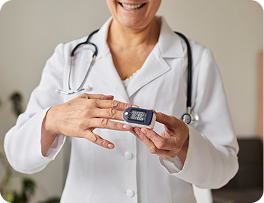The Silent Epidemic: How Technology is Revolutionizing Diabetes Management

Introduction
Diabetes is a global health emergency, now affecting nearly 589 million adults in 2025 and projected to reach 643 million by 2030, with almost half of cases undiagnosed and major complications driving the need for advanced solutions.
Diabetes by the Numbers: A Global Health Emergency
Type 2 diabetes
- . Accounts for 90% of all diabetes cases, mainly due to obesity, unhealthy diets, and sedentary living.
Prevalence
- . 1 in 9 adults worldwide, with the majority of patients living in low- and middle-income countries.
Prediabetes
- . 1 in 3 U.S. adults has prediabetes; risk of progression to diabetes is high without intervention..
Economic burd
- . Diabetes costs nearly $1 trillion in global healthcare and lost productivity each year, straining patients and health systems.
The Human Cost
Kidney failure
- . Diabetes causes 44% of all new kidney failure cases.
Heart/stroke risk
- . Increases heart attack and stroke risk by 2–4 times.
Amputations
- . 1 in 200 diabetes patients undergoes a lower-limb amputation each year due to complications.
Innovations Making a Difference
1. Continuous Glucose Monitors (CGMs)
- Devices like Dexcom G7 and Freestyle Libre 3: Provide real-time, fingerstick-free monitoring. Covered by Medicare and insurers for most insulin users.
Benefits:
- . Reduces HbA1c by 1–2%, cuts hypoglycemia risk by 40%, and improves data-driven management.
2.Smart Insulin Pens
- Bluetooth and memory features: Devices (e.g., NovoPen 6, InPen) sync with apps for dose tracking and AI-powered adjustment recommendations.
Impact:
- . Reduces dosing errors, supports optimal regimens, and assists patients and healthcare providers.
3. Closed-Loop Systems (Artificial Pancreas)
- Automated insulin delivery: Systems like Medtronic 780G and Omnipod 5 continuously adapt insulin dosing to real-time glucose.
Clinical results
- . 20% increase in time spent at target glucose levels, 70% reduction in severe hypoglycemia events.
Lifestyle Interventions: The Foundation of Diabetes Control
1. Low-Carb & Mediterranean Diets
- Proven to reverse prediabetes and reduce heart risk by 30% in people with diabetes.
2. Exercise
- Brief post-meal walks lower glucose spikes by 30%; resistance training enhances insulin sensitivity.
3. Behavioral apps
- Tools like Livongo and MySugr offer virtual health coaching, reinforcing medication and lifestyle adherence.
Conclusion: A Brighter Future for Diabetes Care
- Diabetes is a relentless disease, but innovation is even more relentless. With CGMs, smart pens, closed-loop systems, and digital health tools, patients now have unprecedented control over their condition